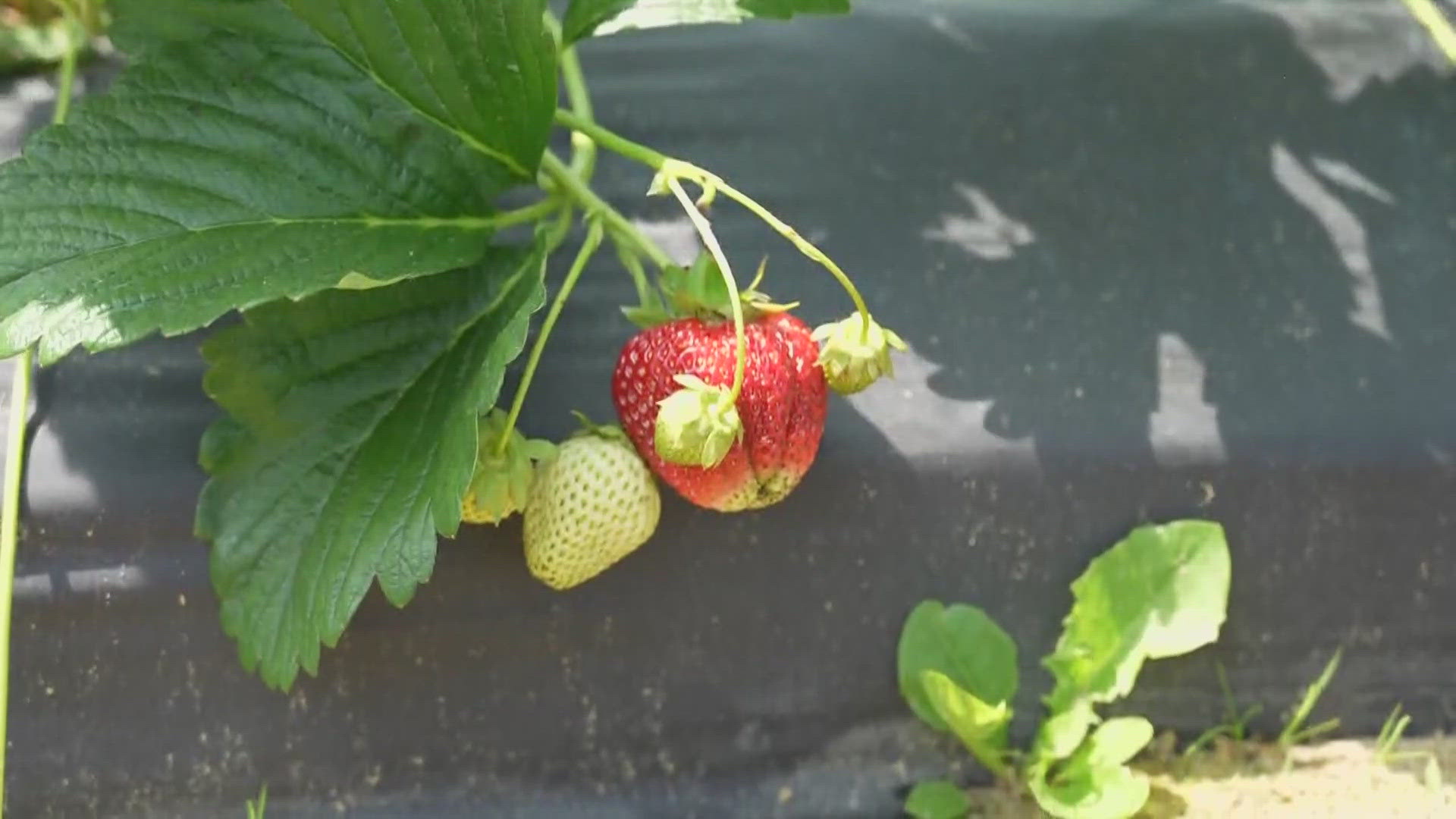MECHANIC FALLS, Maine — During a string of abnormally high temperatures in late June, we checked in with local farmers to see what challenges they might be facing.
Steve Sinisi operates Old Crow Ranch in Durham alongside his wife, Seren, and their young children. He spent a sweltering morning and afternoon bailing hay to store away for his cattle. It's a common thought that several dry summer days is the perfect recipe for cutting and collecting hay. But that week brought way too much of a good thing.
"It’s drying down faster than we can bail it, because I don’t want dry hay," Sinisi said, elaborating that slightly damp hay creates a desired chemical process that makes the hay more nutritious.
Meanwhile in Mechanic Falls, Michael Goss of Goss Berry Farm was in the middle of a successful “you-pick” strawberry season but needed customers to keep coming out in the heat, as high overnight temps can quickly ripen the berries.
Looking long term, he talked about how the U.S. Department of Agriculture in late 2023 shifted parts of Maine into a warmer growing classification for "plant hardiness." He said that provides opportunities to grow more crops longer, but it brings serious challenges too.
"If it warms up in the winter, you can grow more crops like peaches. They won’t suffer," he shrugged. "But the problem we run into is, even though on average it’s still warmer in the winter, you still get those cold swings. And all you need in one night of minus 20, and you lost the peach crop. It doesn’t matter if it was 5 degrees warmer on average. If you just have that one night of real cold, you lose them."
The weather, Goss said, will make or break him and his agricultural peers.

